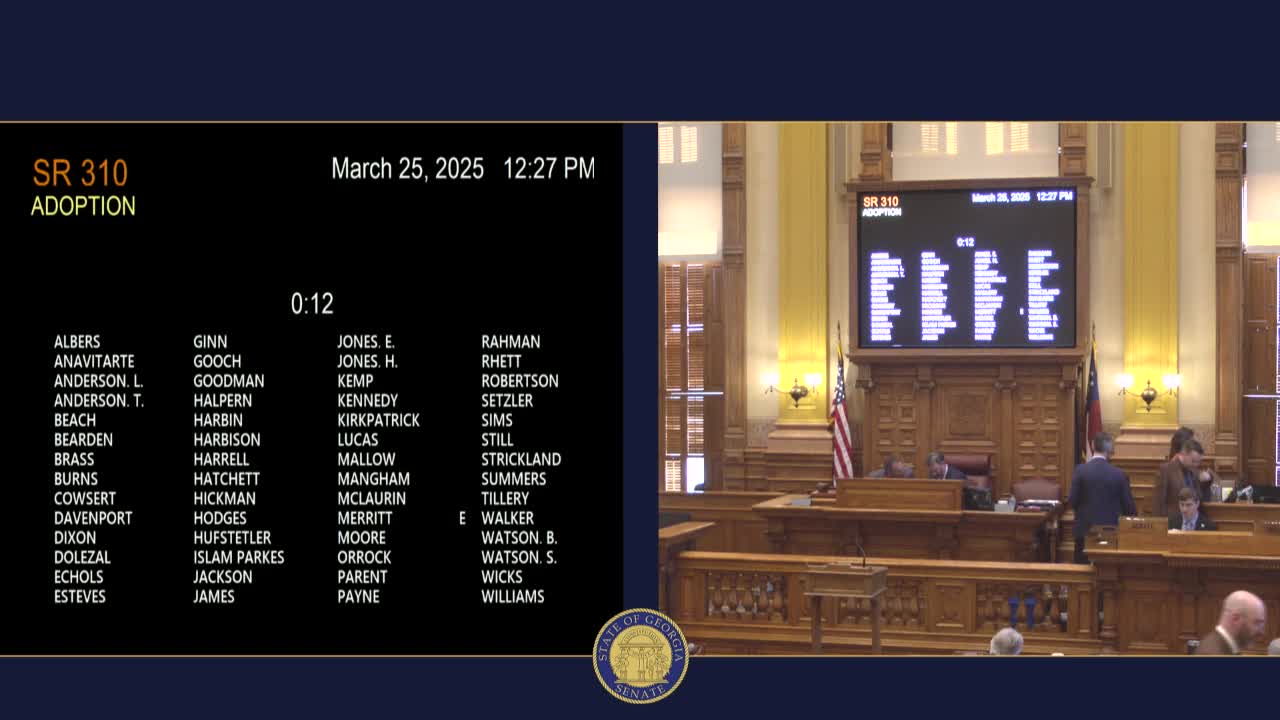Article not found
This article is no longer available. But don't worry—we've gathered other articles that discuss the same topic.
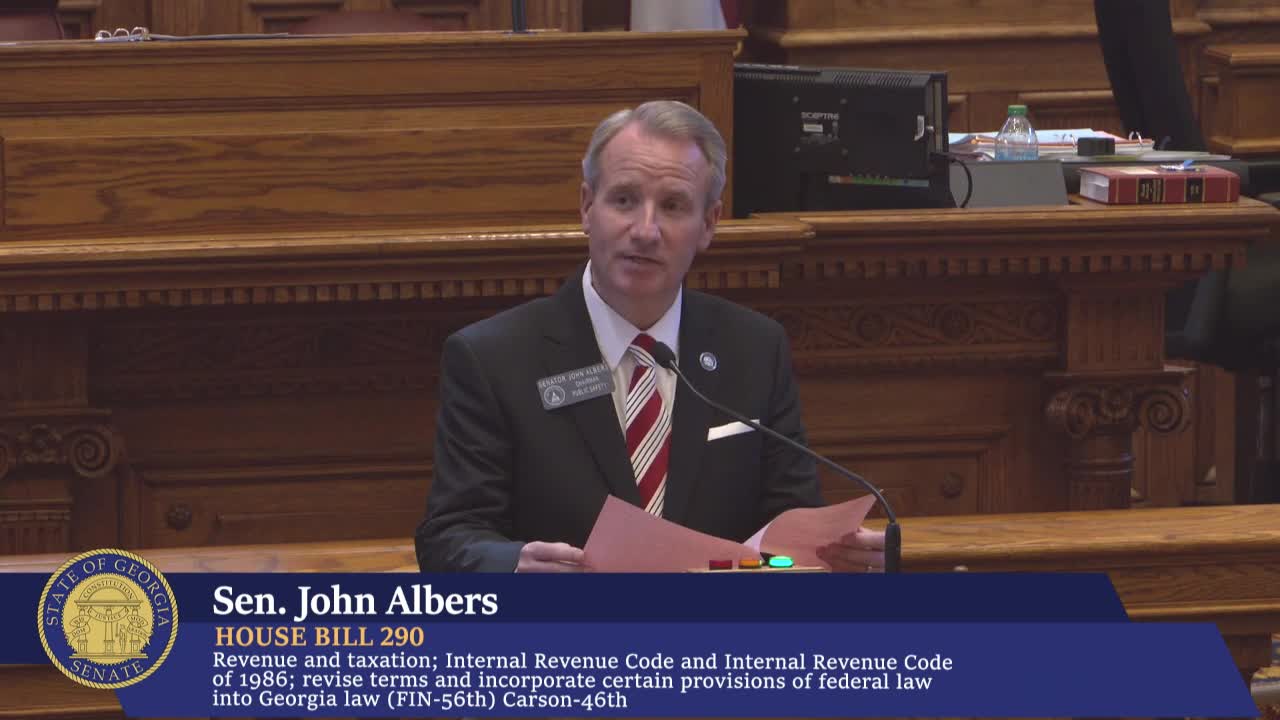
Senate tables proposed expansion to historic rehabilitation tax credit
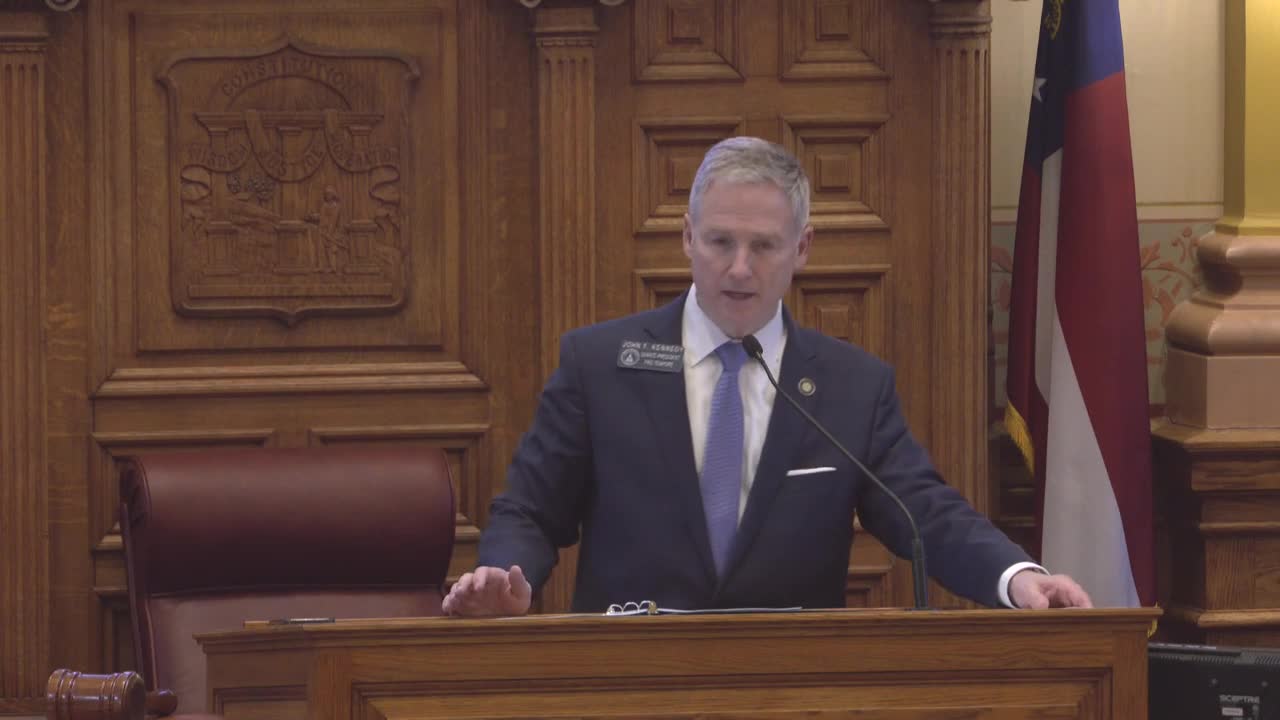
Senate passes House Bill 53 to expand eligibility for burial in Georgia veteran cemeteries
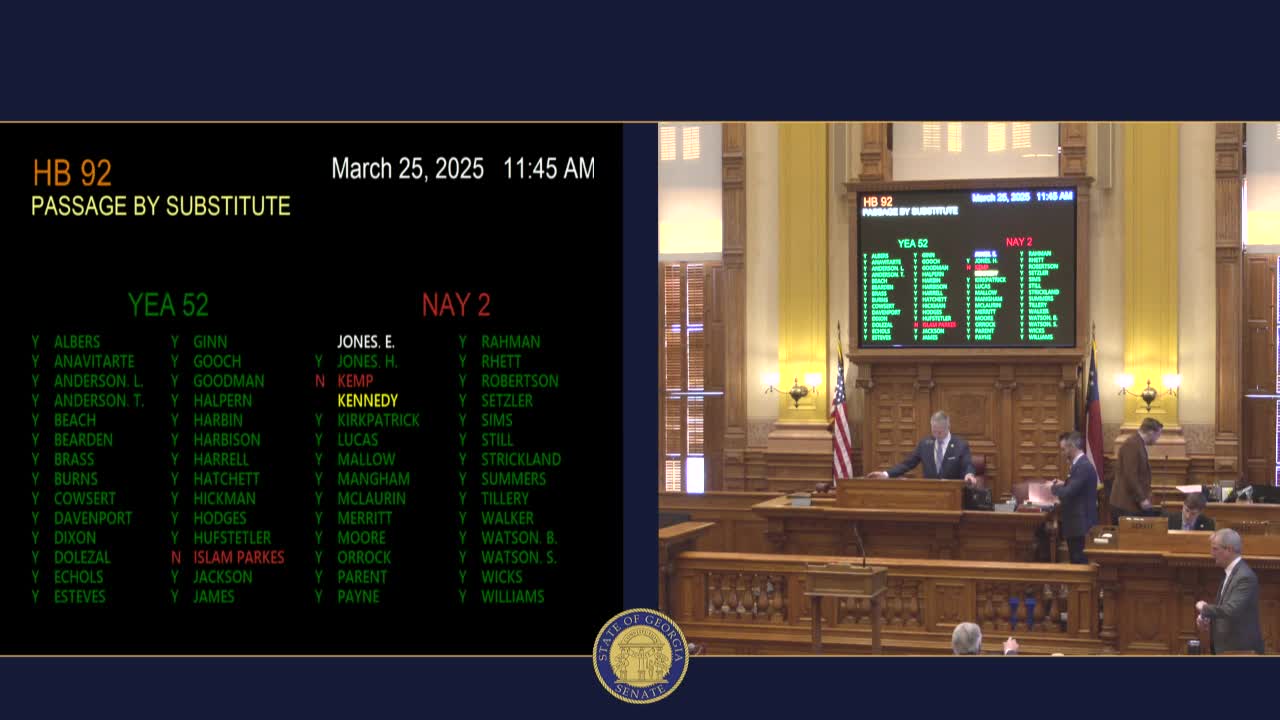
Senate passes bill to return some agricultural water-metering authority to EPD
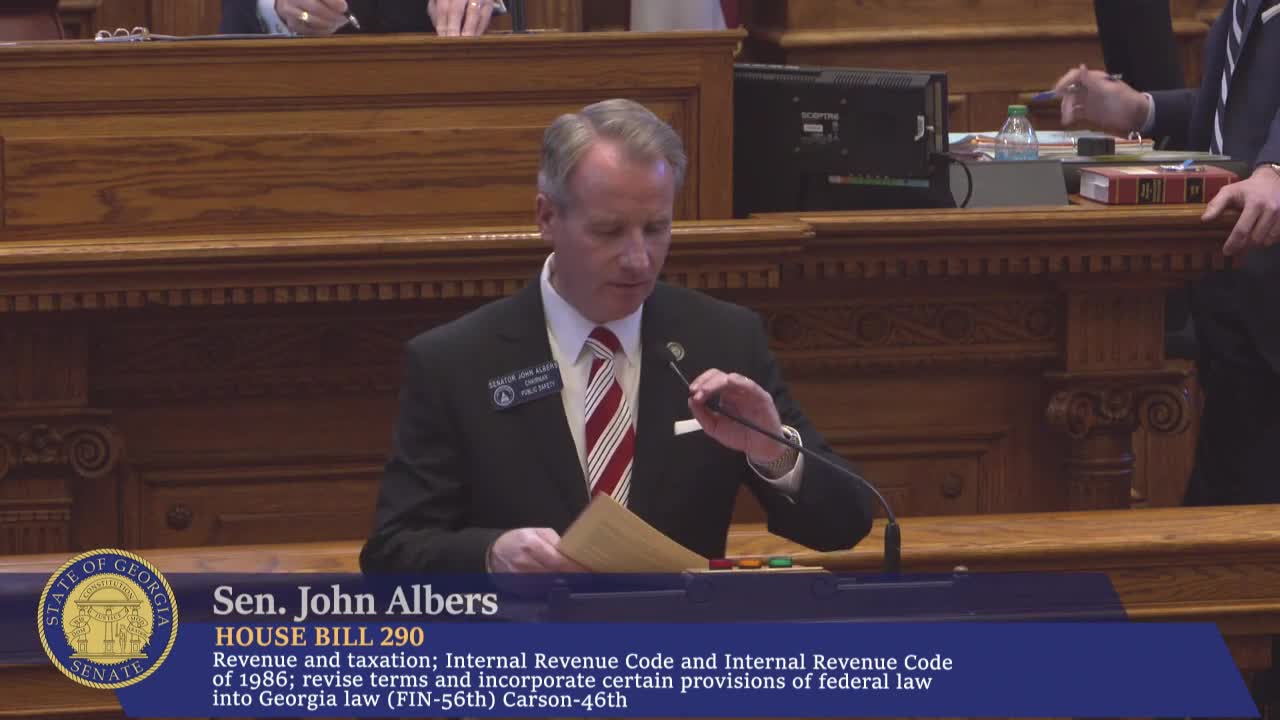
Senate approves annual IRS cleanup bill updating federal-date references; minor projected fiscal impact
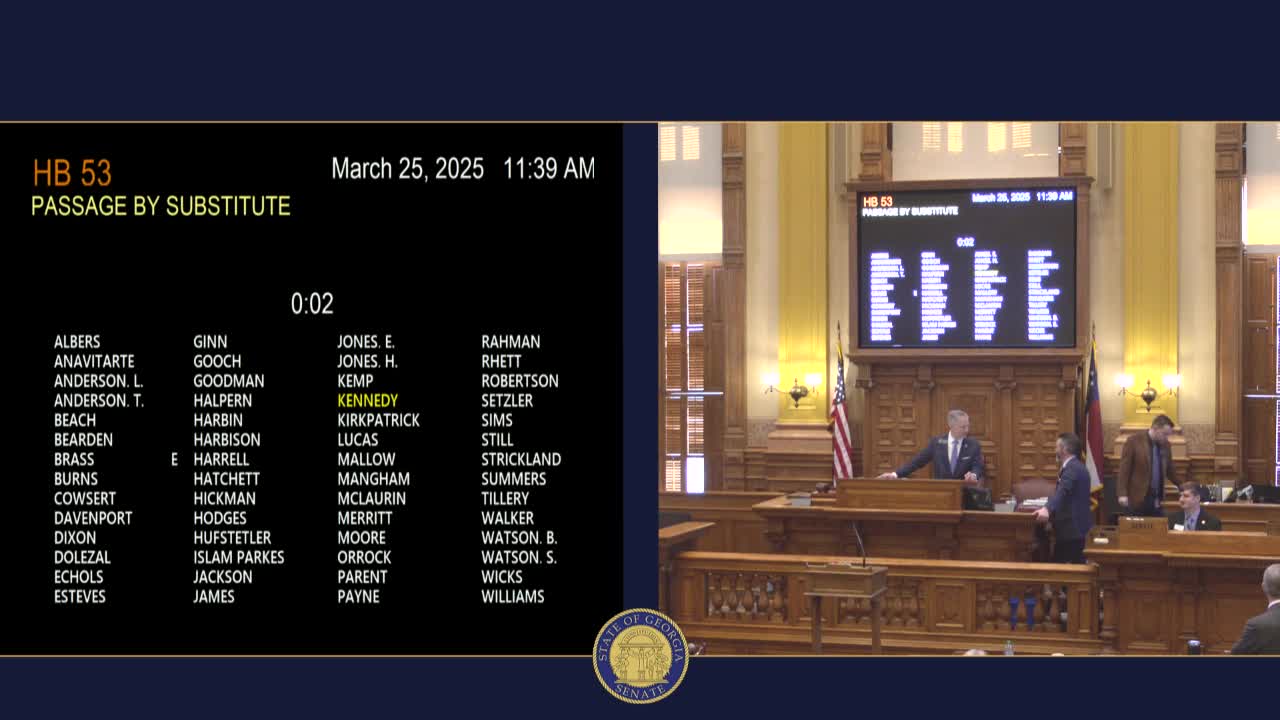
Senate approves changes to statewide base-year homestead exemption and opt-in rules
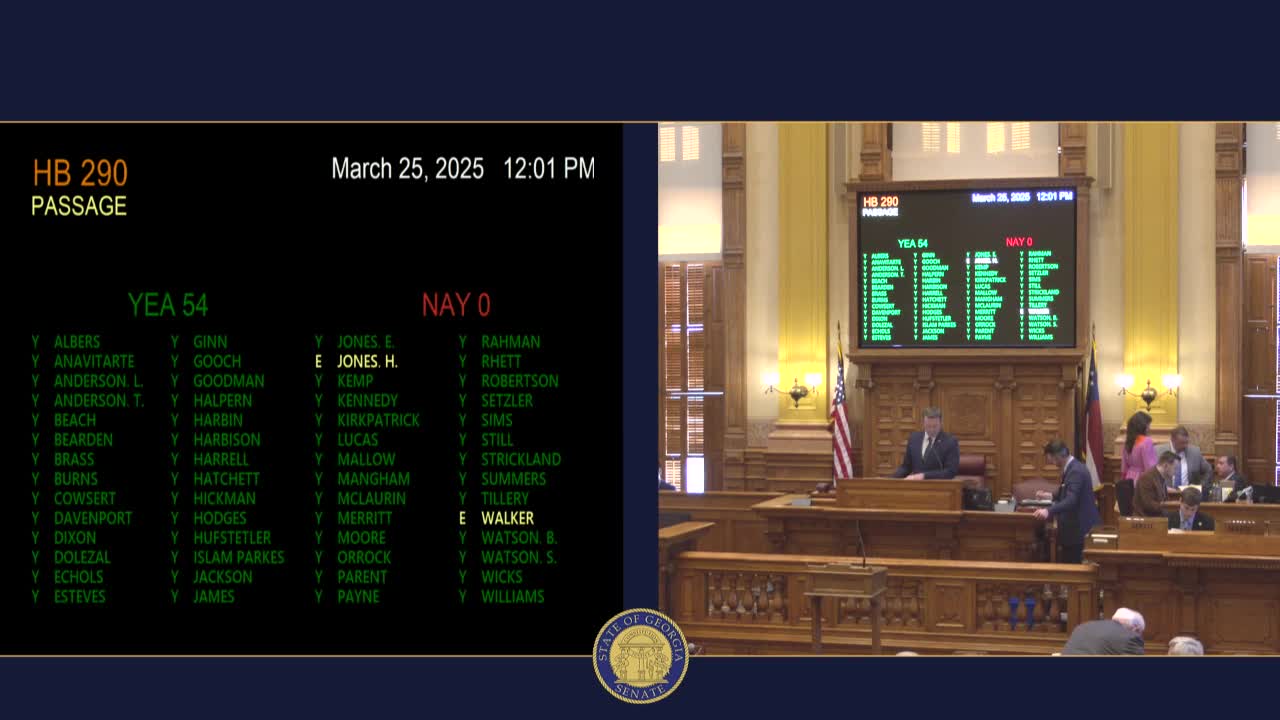
Senate clears changes to film tax credit rules after heated debate and failed amendments
